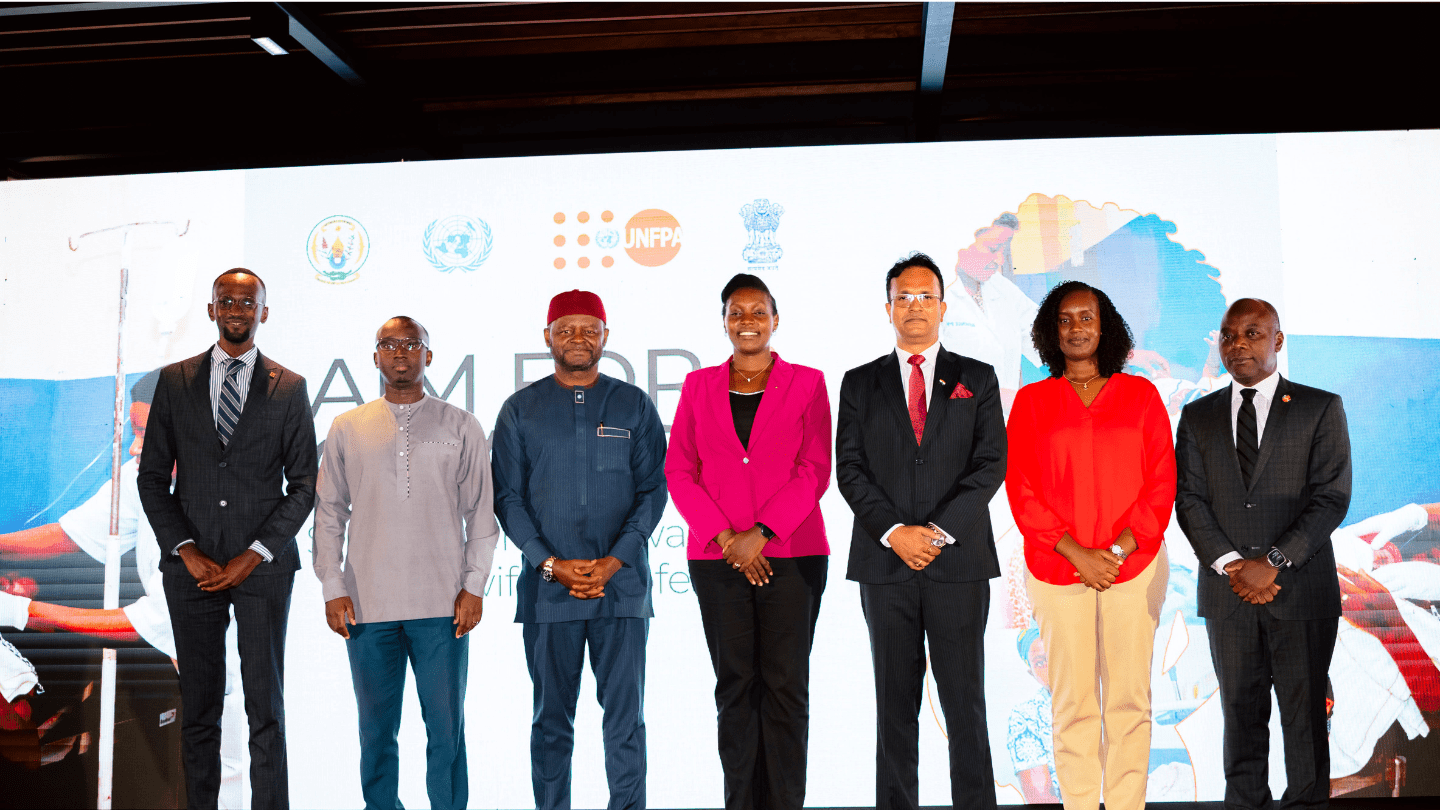In a joint effort, the High Commission of India to Rwanda, the government of Rwanda, and the United Nations Population Fund (UNFPA) Rwanda, launched the 'AIM for Change!' on May 20.
This South-South Cooperation initiative is designed to expand and support the ongoing professionalisation of Rwanda’s midwifery workforce to accelerate progress towards zero preventable maternal deaths.
Funded by the India-UN Development Partnership Fund,a $150 million commitment by the Government of India targeting 65 countries across the southern hemisphere, the initiative advances midwifery and aims to reduce preventable maternal deaths in Rwanda, exemplifying South-South cooperation. It supports the rollout of a standardised, simulation-based midwifery curriculum, expands enrollment and scholarships for about 500 students from diploma to PhD levels, and strengthens midwifery leadership through capacity-building and partnerships with the Rwanda Association of Midwives.
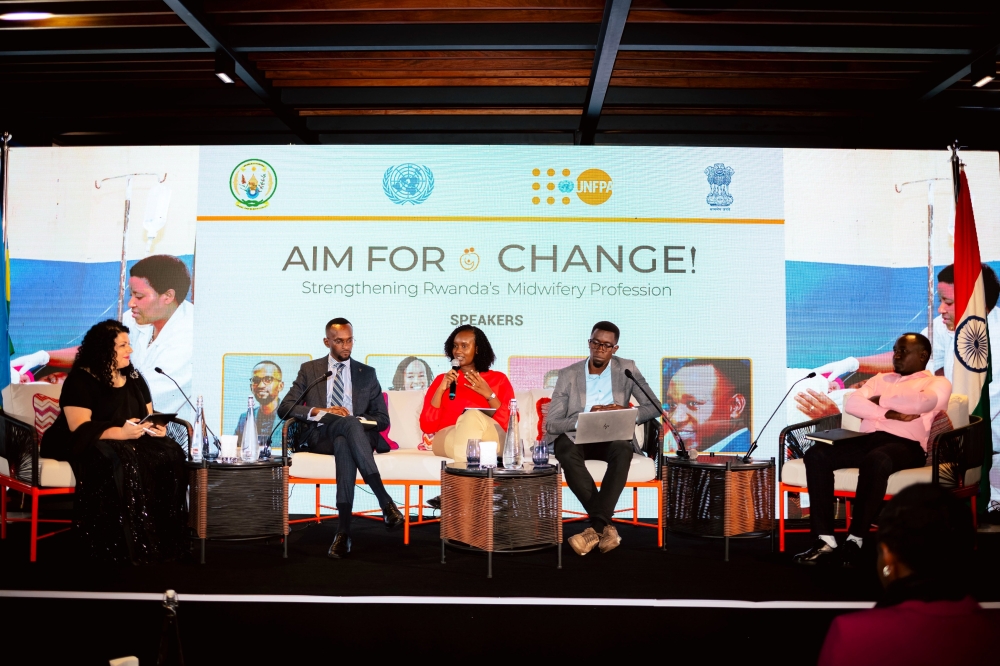 A panel discussion at the launch in Kigali on May 20.
A panel discussion at the launch in Kigali on May 20.
This two-year initiative is expected to benefit midwifery students, educators, and practitioners, ultimately improving maternal and newborn care for thousands of Rwandan families. The parties understand that midwives are essential to saving lives and protecting the health and rights of women and newborns. Yet, Rwanda faces a shortage of skilled midwives, a challenge that has contributed to the slow progress in the reduction of maternal mortality in the country - Rwanda saw only a slight decrease in its maternal mortality ratio between 2015 and 2020, falling from 210 to 203 deaths per 100,000 live births.
According to Dr Menelas Nkeshimana, Head of the Health Workforce Department in the Ministry of Health, hospitals in Rwanda register between 300,000 and 400,000 newborns each year. However, the national standard recommends that every woman in labour should be attended to by at least two midwives. In reality, this is not the case because one midwife often supervises up to ten women in labour at the same time.
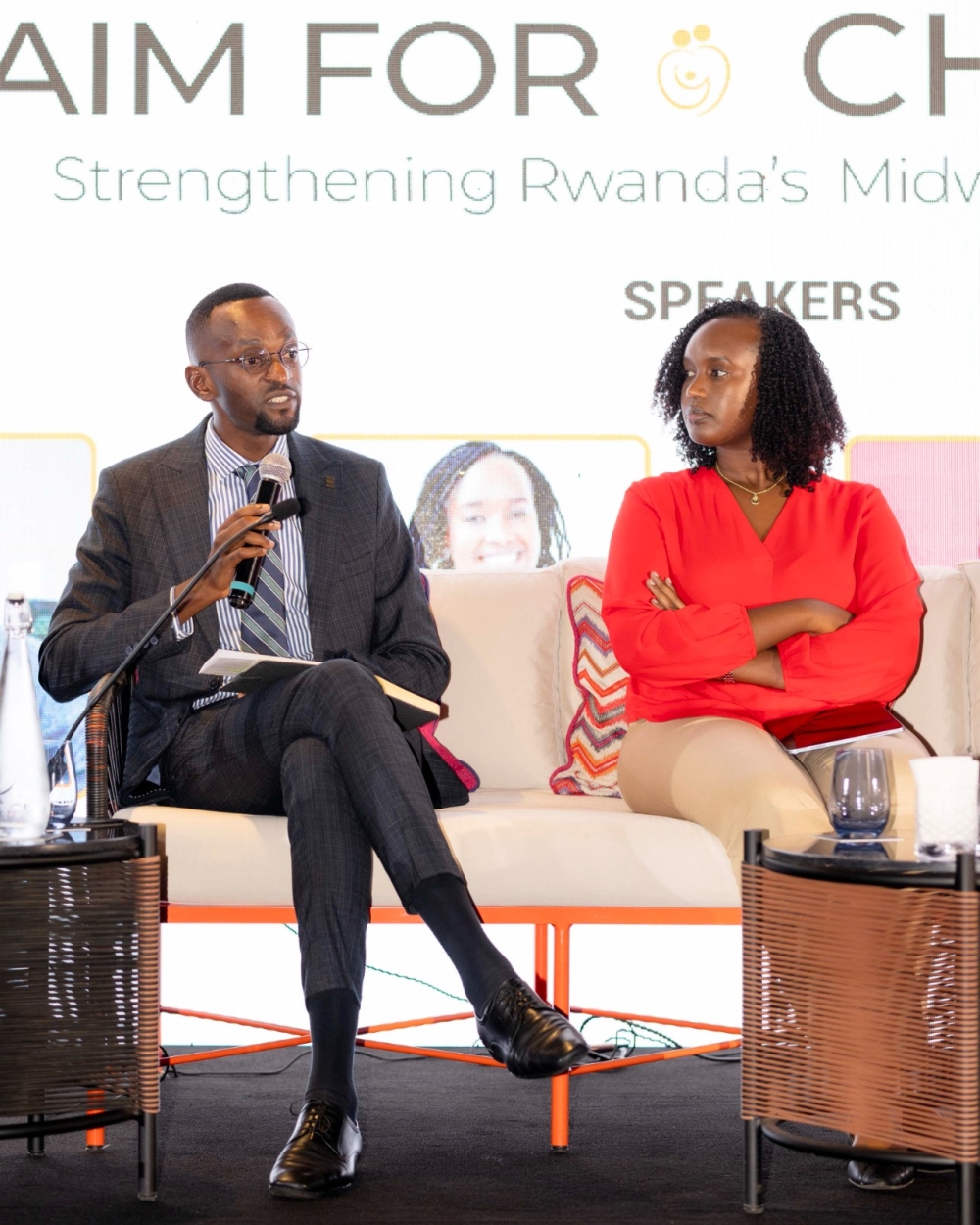 Dr Menelas Nkeshimana, the Head of the Health Workforce Department in the Ministry of Health and Elodie Shami, the Director General of Imbuto Foundation during a panel discussion session
Dr Menelas Nkeshimana, the Head of the Health Workforce Department in the Ministry of Health and Elodie Shami, the Director General of Imbuto Foundation during a panel discussion session
“We’ve been receiving complaints from patients and have witnessed these challenges in hospitals. This issue needs to be addressed from the root, starting in schools. For many years, we couldn’t enroll more than 100 midwifery students per academic year. That’s why we now want to increase the number of students,” he noted.
Nkeshimana added that Rwanda currently has 11 midwifery schools, with about 2,800 active professionals. Despite this, the number of midwives remains low.
“Through the new programme, more students, especially those who previously faced financial difficulties will be able to join the midwifery faculty. The goal is to eventually train a sufficient number of qualified midwives to meet the country’s needs in line with the 4x4 initiative of the Ministry of Health that was designed to quadruple the health workforce in the next 4 years,” he said.
Nkeshimana said the partnership with key stakeholders, including UNFPA, has helped increase the number of active midwifery students to 2,700, and everybody has to undergo a four-year academic programme.
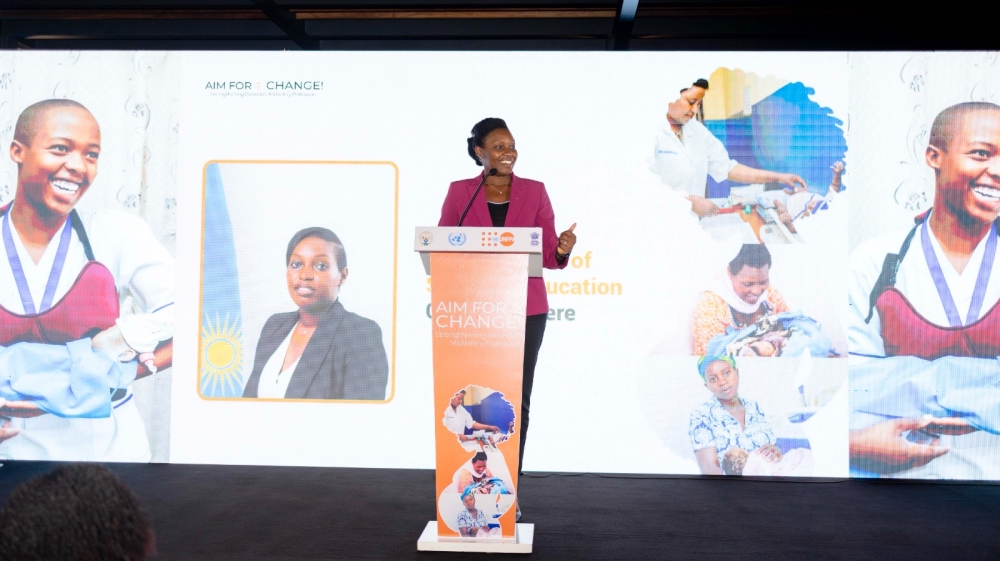 Claudette Nirere, the Minister of State for Education speaks at the event
Claudette Nirere, the Minister of State for Education speaks at the event
Claudette Nirere, the Minister of State for Education, in her keynote remarks launching the initiative, noted that the progress made by the country in increasing the number of midwives over the years is correlated with the reduction in maternal mortality that the country achieved over the years, effectively reducing the MMR by about 80% between 2000 and 2020.
“However, we know we can reduce this number even further by tackling the shortage of skilled midwives by continuing to invest in high-quality education to ensure every mother receives quality care. In Rwanda, we believe that education is not only a pathway to personal success, it is the engine of national development - this includes midwifery education,” she said.
“The midwives we are supporting and educating today are the guardians of tomorrow’s mothers and newborns. They will go on to train thousands more and ensure that no woman dies from a preventable maternal death. We aim to ensure Rwandan midwives are the gold standard of what midwives can achieve and what a country that prioritises education and health can accomplish,” she added.
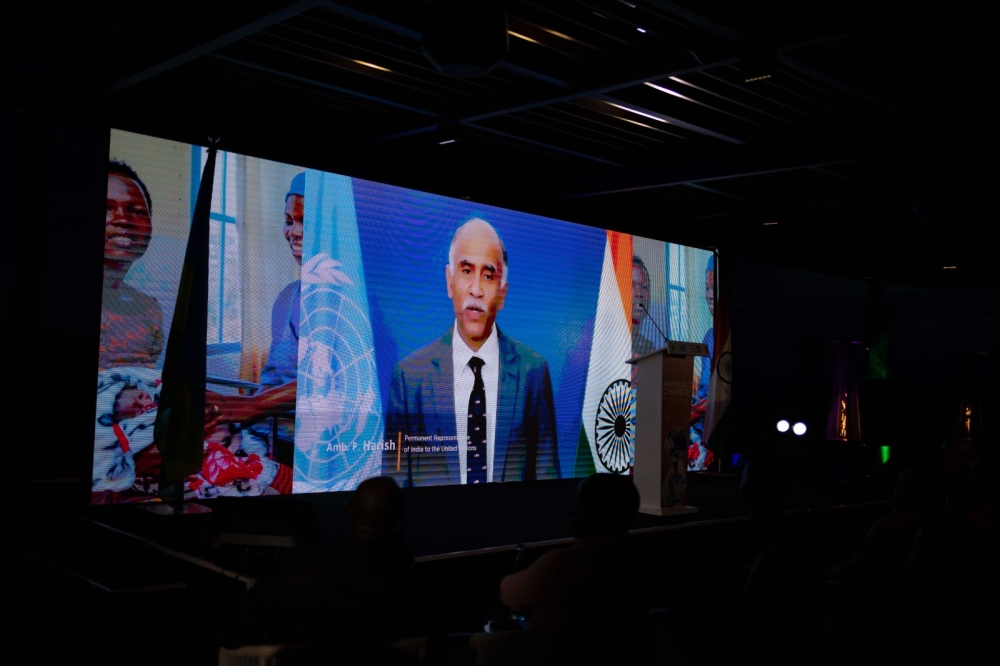 Ambassador Harish Parvathaneni, India’s Permanent Representative to the United Nations, hailed the launch of 'AIM for Change!, in a virtual attendance
Ambassador Harish Parvathaneni, India’s Permanent Representative to the United Nations, hailed the launch of 'AIM for Change!, in a virtual attendance
Ambassador Harish Parvathaneni, India’s Permanent Representative to the United Nations, hailed the launch of 'AIM for Change!' in Rwanda as a milestone in the strengthening of bilateral ties and grassroots collaboration between the two nations.
“The project symbolises the deepened relationship and the people-to-people contact between the two countries,” he noted.
 Dr Olugbemiga Adelakin, UNFPA Country Representative delivers his remarks at the launch in Kigali
Dr Olugbemiga Adelakin, UNFPA Country Representative delivers his remarks at the launch in Kigali
Dr Olugbemiga Adelakin, UNFPA Country Representative, highlighted the commendable leadership of the Government of Rwanda and its unwavering dedication to the health and well-being of its mothers and children.
Reiterating the inspiring journey that Rwanda has made in advancing maternal health, he stated that the reduction in maternal mortality is a testament to the strong political will and effective national strategies.
He stated that the fact that the Government has set a robust MMR target that it aims to attain even before the SDG targets are due, is a challenge to UNFPA and other Partners to support the ongoing scale-up and acceleration efforts of the Government.
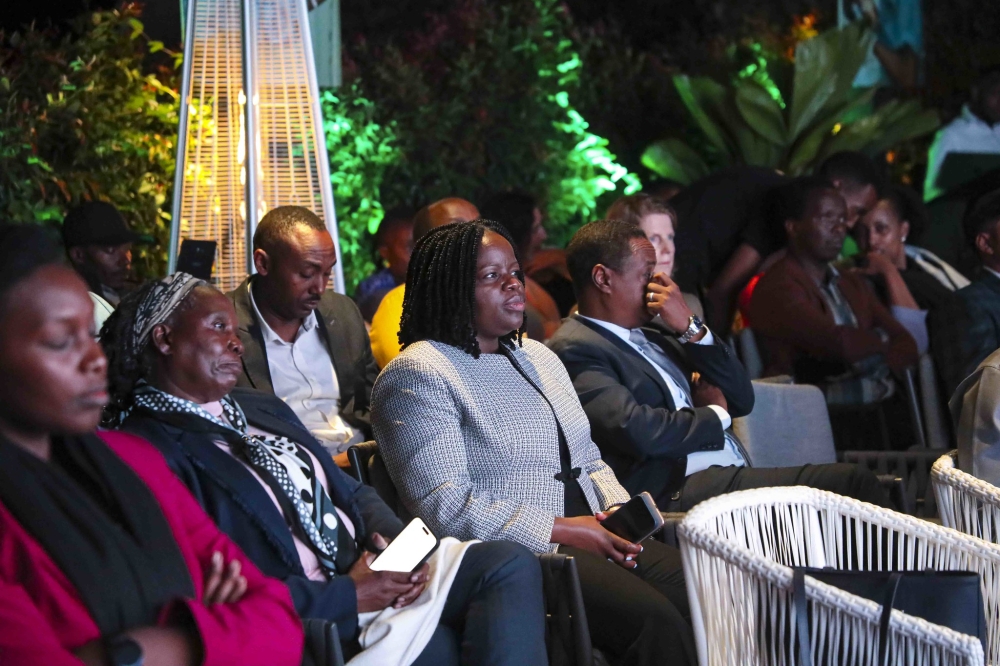 Participants follow a pannel dicussion during the launch on Tuesday, May 20.
Participants follow a pannel dicussion during the launch on Tuesday, May 20.
He emphasised the need for the number of midwives in Rwanda to reach the level stipulated by the WHO as the gap in the number of midwives puts additional burden on the healthcare system and limits the quality of care for women during childbirth. Addressing the shortage and gaps in midwifery aligns with the Government of Rwanda’s National Strategy for Transformation (NST2), which prioritises human capital development.
Amb. Mridu Pawan Das, High Commissioner of India to Rwanda, in his own remarks, noted that the partnership between the two countries is rooted in mutual respect, shared goals, and a deep commitment to improving the lives of the people, especially women and children.
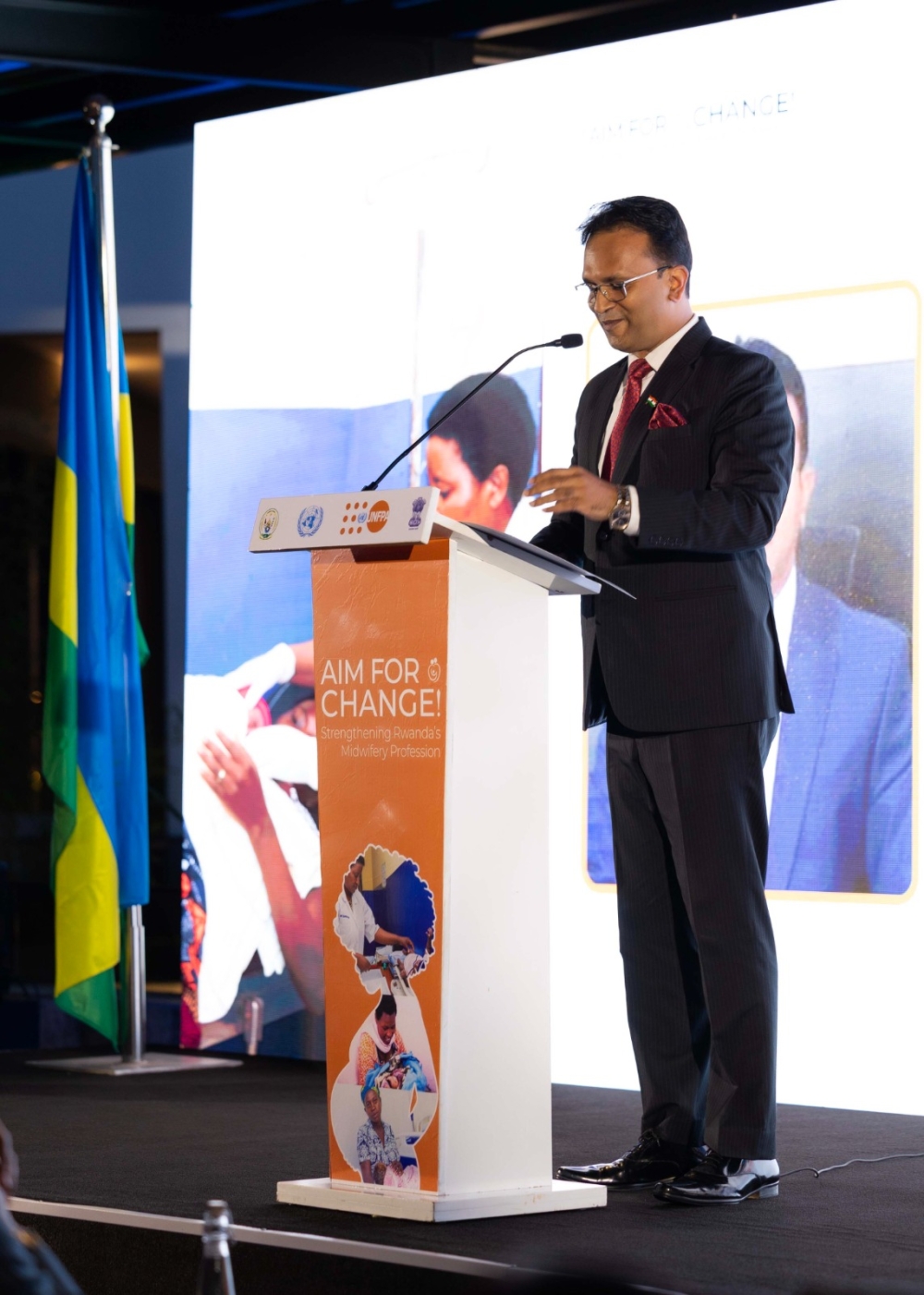 Amb. Mridu Pawan Das, High Commission of India to Rwanda addresses delegates at the launch.
Amb. Mridu Pawan Das, High Commission of India to Rwanda addresses delegates at the launch.
“Today we reaffirm a promise that no woman should die giving life. That every newborn should be welcomed into the world safely. And that every midwife should be equipped with the knowledge, skills, and support they need to provide life-saving care,” he said.
Amb. Mridu acknowledged the leadership of the Government of Rwanda, specifically the Ministry of Health and Ministry of Education, for their continued efforts to improve health outcomes for women and children.
“The 4x4 strategy to address the skilled health workforce shortage is an ambitious and commendable goal. The Government of India is honoured to support this effort through the AIM for Change! project,” he added.
UNFPA has long supported midwifery in Rwanda through various capacity-building initiatives. These include simulation-based training for obstetric emergencies, mentorship in Emergency Obstetric and Neonatal Care (EmONC), and technical support in developing a standardised midwifery curriculum aligned with international standards.
 Didas Kayihura Muganga, the Vice Chancellor of the UR graces the event
Didas Kayihura Muganga, the Vice Chancellor of the UR graces the event

This two-year initiative is expected to benefit midwifery students, educators, and practitioners, ultimately improving maternal and newborn care for thousands of Rwandan families.
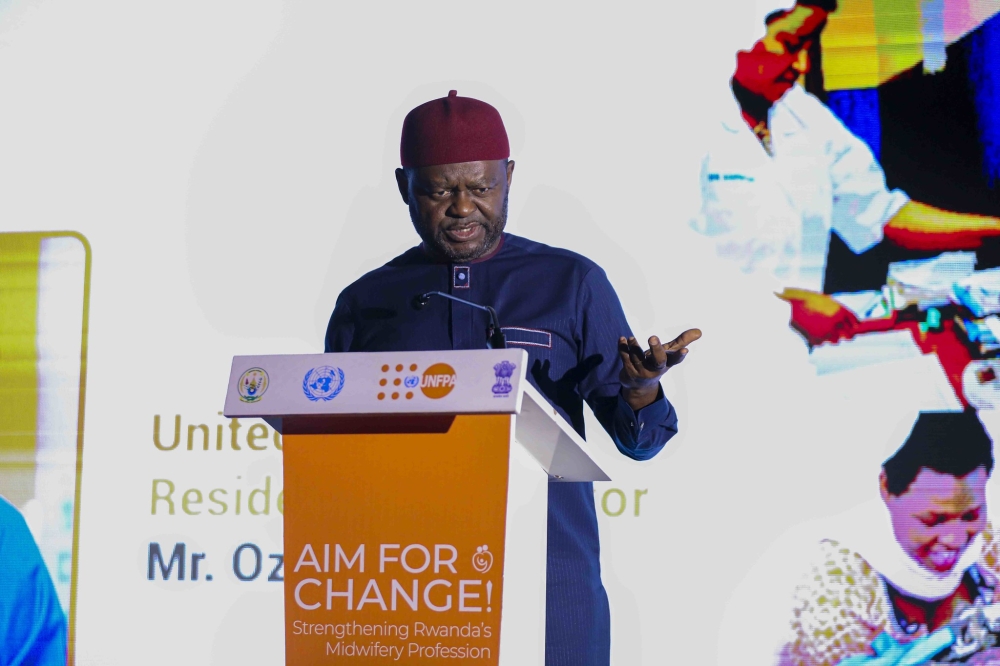 Ozonnia Ojielo, the UN Resident Coordinator in Rwanda delivers his remarks during the launcg of AIM FOR CHANGE on Tuesday, May 20.
Ozonnia Ojielo, the UN Resident Coordinator in Rwanda delivers his remarks during the launcg of AIM FOR CHANGE on Tuesday, May 20.
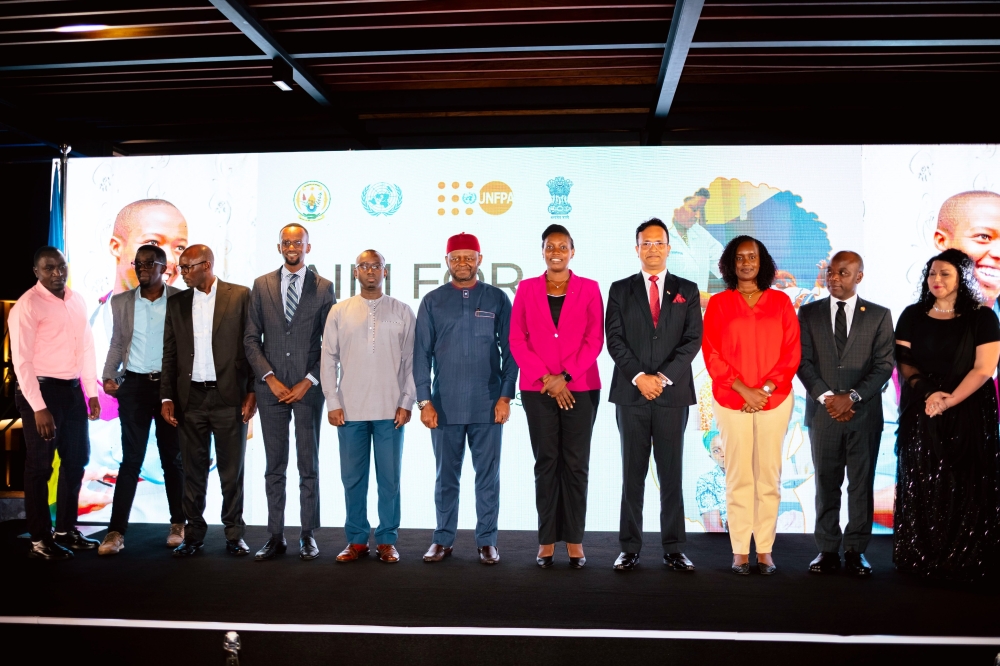 The High Commission of India to Rwanda, the Ministry of Health, and the United Nations Population Fund (UNFPA) Rwanda, launched the 'AIM for Change!' on May 20.
The High Commission of India to Rwanda, the Ministry of Health, and the United Nations Population Fund (UNFPA) Rwanda, launched the 'AIM for Change!' on May 20.

